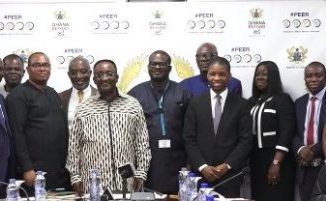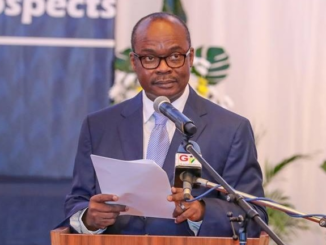The accountants and auditors of the seven collapsed banks have come under severe criticisms for their respective roles in the banks’ collapse and the ACCA Ghana has issued a strong statement that it would punish such members for not living by the tenets and ethics of the profession.
In an interview with the GRAPHIC BUSINESS, the President of ACCA Ghana, Mr Michael Nyarko, said ACCA as a body had always maintained the need for members to leave up to the tenets of the profession.
He said it was in this vein that it kept organising professional development programmes for its members to bring them to speed on emerging trends and the need for them to keep up with what is expected of them.
“ACCA Ghana is taking up some of these issues seriously as they come up and in due course we will all know the kind of steps we have taken to ensure that members who are found culpable in some of these issues are dealt with,” he stated.
“All these things are a process and we don’t have to jump out and tell everyone what is going on. We have various disciplinary procedures that we are going through,” he added.
He said some of those processes did not happen overnight since everyone had to be given a fair hearing to ensure they were not unjustifiably victimised.
Inducts new members
The ACCA has inducted 400 new members into the professional body.
Mr Nyarko said the new inductees were taken through a comprehensive orientation session to remind them of the need to uphold the professional ethics of ACCA.
Touching on the theme for the induction, which was ‘Professional accountants as change leaders’, he said accountants in the past had always led change in the world and was therefore only fit and proper to remind accountants in the country to keep up with the tenet of leading the change and following in the crusade for change that had always been by their training.
Ineffective leadership
Giving the keynote address, the Deputy Auditor General, Mr George Winful, said the numerous scandals bedeviling African countries had been blamed on ineffective leadership.
He said the mode in which people were appointed into public offices was likely to be the cause of the continent’s predicament.
“Without knowing, we appoint people who are obsessed with their own selfish interests to strategic institutions and they quickly accept the positions and immediately embark on their own personal economic recovery programmes at the expense of the call to duty,” he stated.
“Some of our elected officials use money to get into power.
With that, what kind of leadership would you expect from such people? If this is how some of our elected officials get into power, then we can’t begrudge them if they have to use corrupt means to recoup what they lost, plus more,” he added.




